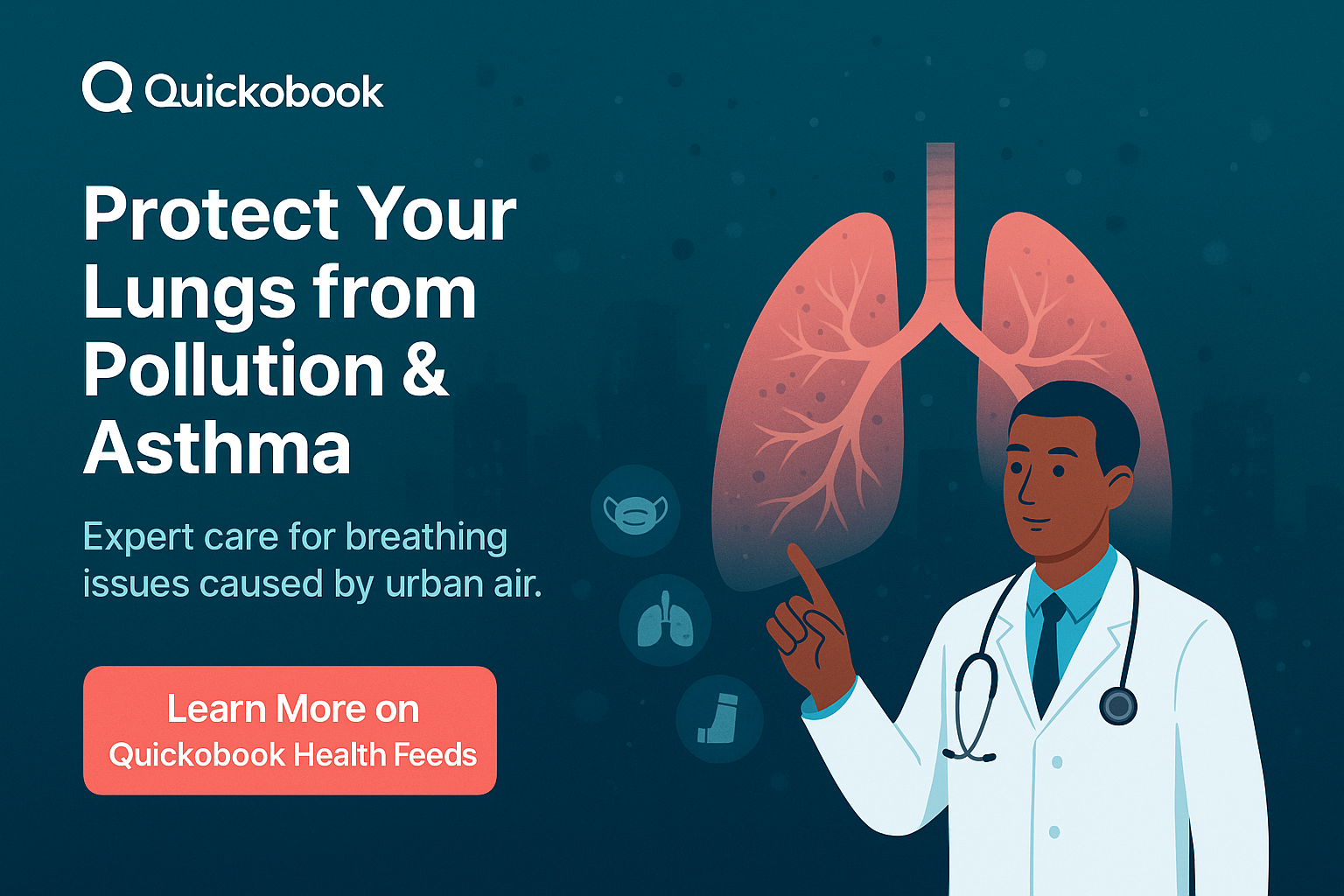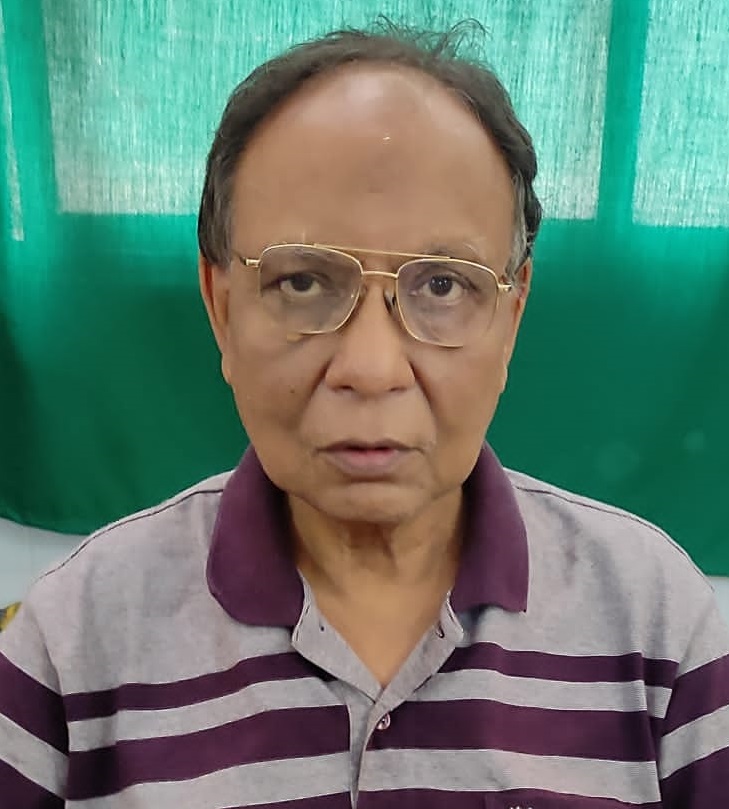Introduction
Breathing is life. Every cell in your body depends on oxygen, which your respiratory system provides. Yet, millions of Indians today struggle with breathing problems due to asthma, air pollution, and other respiratory conditions. A pulmonologist—a doctor specializing in lung and breathing disorders—plays a key role in diagnosing, treating, and preventing these conditions.
In this guide, we’ll explore how your respiratory system works, the impact of air pollution, symptoms of common diseases like asthma, and when to visit a pulmonologist. You’ll also find tips to keep your lungs strong and FAQs about respiratory care in India.
Overview of the Respiratory System
Your respiratory system includes the nose, throat, windpipe (trachea), lungs, and diaphragm. It allows oxygen to enter your bloodstream and removes carbon dioxide. Healthy lungs are essential for energy, concentration, and immunity.
How Breathing Works
- Inhalation: Air enters through your nose or mouth, travels down your trachea, and reaches your lungs.
- Gas Exchange: In the lungs, oxygen moves into the blood, and carbon dioxide is expelled.
- Exhalation: The diaphragm relaxes, pushing carbon dioxide out of your body.
Role of a Pulmonologist
A pulmonologist (lung specialist) diagnoses and manages diseases of the lungs and respiratory tract. They often collaborate with general physicians and critical care experts.
When to See a Pulmonologist
- Frequent shortness of breath
- Persistent cough (over 3 weeks)
- Chest pain while breathing
- Wheezing or noisy breathing
- Sleep apnea symptoms (snoring, fatigue)
- Asthma or COPD management
Pulmonologists use tools like spirometry, chest X-rays, CT scans, and blood gas analysis to assess lung health.
Common Respiratory Diseases
Asthma
Asthma causes airway inflammation and narrowing, making breathing difficult. It may be triggered by dust, pollen, pollution, or stress.
Symptoms: Wheezing, coughing, breathlessness, chest tightness.
Treatment: Inhalers, corticosteroids, and lifestyle changes.
Chronic Obstructive Pulmonary Disease (COPD)
A progressive disease usually caused by smoking or long-term exposure to air pollutants.
Symptoms: Persistent cough, mucus, fatigue, and shortness of breath.
Treatment: Bronchodilators, oxygen therapy, and pulmonary rehabilitation.
Pneumonia
A lung infection that causes fever, cough, and chest pain.
Treatment: Antibiotics and rest (under doctor supervision).
Air Pollution and Lung Health in India
Air pollution is a silent killer in many Indian cities. Fine particulate matter (PM2.5) and industrial emissions damage lung tissues and worsen diseases like asthma and bronchitis.
Health Effects of Air Pollution
- Chronic cough and breathing difficulty
- Reduced lung growth in children
- Increased risk of heart disease and stroke
- Exacerbation of asthma and COPD
Ways to Protect Yourself
- Wear N95 masks outdoors.
- Use air purifiers at home.
- Avoid outdoor workouts during peak pollution hours.
- Grow air-purifying plants like aloe vera and spider plants.
- Schedule regular check-ups with a pulmonologist.
Diagnosis and Tests
Common tests include:
- Spirometry: Measures airflow and lung capacity.
- Peak Flow Meter: Monitors asthma control.
- Chest X-ray/CT scan: Detects infections or structural issues.
- Allergy testing: Identifies asthma triggers.
- Blood tests: Measure oxygen levels and inflammation markers.
Treatment and Management
Depending on your diagnosis, your pulmonologist may recommend:
- Inhalers or Nebulisers for asthma
- Bronchodilators to relax airways
- Corticosteroids to reduce inflammation
- Oxygen therapy for COPD or severe lung disease
- Lifestyle management: Avoiding smoking, pollution, and allergens
Lifestyle Tips for Healthy Lungs
- Quit smoking – it’s the biggest lung destroyer.
- Exercise regularly to strengthen your diaphragm.
- Eat antioxidant-rich foods like amla, turmeric, and ginger.
- Practice deep breathing or yoga (pranayama).
- Stay hydrated to keep mucus thin and easy to clear.
- Get vaccinated against flu and pneumonia.
Prevention and Early Intervention
Early detection is key. Visit your pulmonologist if you have:
- A persistent cough
- Difficulty breathing
- Recurrent respiratory infections
- Family history of asthma or COPD
Timely care can prevent chronic damage and improve life expectancy.
When to See a Doctor Immediately
Seek urgent medical help if you notice:
- Sudden breathlessness
- Blue lips or fingertips (low oxygen)
- Severe wheezing or chest pain
- Asthma attack not responding to inhaler
- High fever with cough and mucus
Risks and Complications
Untreated respiratory issues can lead to:
- Chronic oxygen shortage
- Lung scarring (fibrosis)
- Heart strain (cor pulmonale)
- Reduced quality of life
Conclusion
Your lungs are life’s filters—treat them with care. Regular visits to a pulmonologist, timely asthma management, and protection from air pollution can safeguard your respiratory health. Breathing freely isn’t a luxury—it’s a necessity.
Quickobook CTA
Need a pulmonologist near you?
Book trusted lung specialists online at Quickobook.com
Compare doctors, ratings, and consultation fees
Choose in-clinic or online appointments anytime
Disclaimer:
This blog is for educational purposes only. It is not a substitute for medical advice. Please consult a qualified pulmonologist or physician before starting or changing any treatment.
Top 50 FAQs about Pulmonologists, Asthma & Air Pollution
- What does a pulmonologist do?
A pulmonologist diagnoses and treats diseases of the lungs and breathing system. - When should I see a pulmonologist?
If you have chronic cough, breathlessness, or chest tightness lasting more than 3 weeks. - Can asthma be cured?
No, but it can be managed effectively with medication and avoiding triggers. - What are common asthma triggers?
Dust, pollen, smoke, cold air, and air pollution. - Does air pollution cause asthma?
It can worsen asthma and increase the risk of developing respiratory problems. - Can children develop asthma due to pollution?
Yes, exposure to high pollution can damage developing lungs in children. - Is air purifier use beneficial?
Yes, especially in urban areas with high PM2.5 levels. - What are early symptoms of COPD?
Chronic cough, mucus, and breathlessness. - How is asthma diagnosed?
Through lung function tests like spirometry and medical history. - Is asthma genetic?
Yes, family history increases the risk. - Can I exercise with asthma?
Yes, with your doctor’s guidance and inhaler use before workouts. - Does smoking affect lung capacity?
Yes, smoking damages lung tissue and reduces oxygen absorption. - What are signs of poor air quality?
Hazy skies, eye irritation, and difficulty breathing outdoors. - Can indoor pollution harm lungs?
Yes, from cooking smoke, incense, or dust mites. - What are safe AQI levels for health?
Below 50 is good; 100+ can harm sensitive individuals. - Can masks help prevent asthma attacks?
Yes, N95 masks filter pollutants and allergens. - What foods help lung health?
Citrus fruits, ginger, turmeric, and green leafy vegetables. - Is steam inhalation helpful?
Yes, it clears mucus and eases breathing. - What vaccines should asthma patients take?
Flu and pneumococcal vaccines. - Can stress trigger asthma?
Yes, emotional stress can cause flare-ups. - How is COPD treated?
With inhalers, oxygen therapy, and pulmonary rehab. - Can I live a normal life with COPD?
Yes, with regular treatment and healthy lifestyle changes. - Does humidity affect asthma?
Yes, high humidity can make breathing harder. - Are inhalers safe for long-term use?
Yes, when prescribed and used correctly. - How can I improve indoor air quality?
Ventilate rooms and use air-purifying plants. - Can asthma worsen during winter?
Yes, due to cold air and infections. - Is secondhand smoke harmful?
Extremely—it increases lung disease risk in non-smokers. - How do pulmonologists treat sleep apnea?
Through CPAP machines and lifestyle advice. - Does yoga help asthma?
Yes, breathing exercises like pranayama improve control. - Can air pollution cause lung cancer?
Yes, long-term exposure increases cancer risk. - Can masks protect from COVID-19 and pollution?
Yes, N95 masks protect from both. - How often should I see a pulmonologist?
At least once a year or more if you have chronic symptoms. - Can dust allergies cause asthma?
Yes, dust mites are a common trigger. - How can I monitor asthma at home?
Use a peak flow meter daily. - What is pulmonary rehabilitation?
A therapy combining exercise, education, and breathing training. - Can air pollution affect pregnant women?
Yes, it can cause complications and affect the baby’s lungs. - Can asthma lead to hospitalization?
Yes, during severe attacks or poor control. - What are the side effects of inhalers?
Minor throat irritation or hoarseness; rinse after use. - How does obesity affect breathing?
Extra weight puts pressure on the lungs and diaphragm. - Can home remedies cure asthma?
No, but they can support medical treatment. - Does alcohol affect lungs?
Heavy drinking weakens immunity and increases infection risk. - What is bronchitis?
Inflammation of the airways causing cough and mucus. - Can air pollution damage healthy lungs?
Yes, prolonged exposure can cause irreversible changes. - Is lung function reversible?
In asthma—yes; in COPD—partially, not fully. - Can children outgrow asthma?
Sometimes symptoms lessen with age, but monitoring is key. - Can lung damage be repaired?
Mild damage can heal, but severe fibrosis is permanent. - Is oxygen therapy safe?
Yes, when prescribed by a pulmonologist. - How can I strengthen my lungs naturally?
Exercise, deep breathing, and clean air exposure. - Are pulmonologists available online?
Yes, you can consult certified pulmonologists via Quickobook. - How much does a pulmonologist visit cost in India?
Typically ₹500–₹1200 depending on city and experience.










Comments (0)
No comments yet. Be the first to share your thoughts!
Leave a Comment